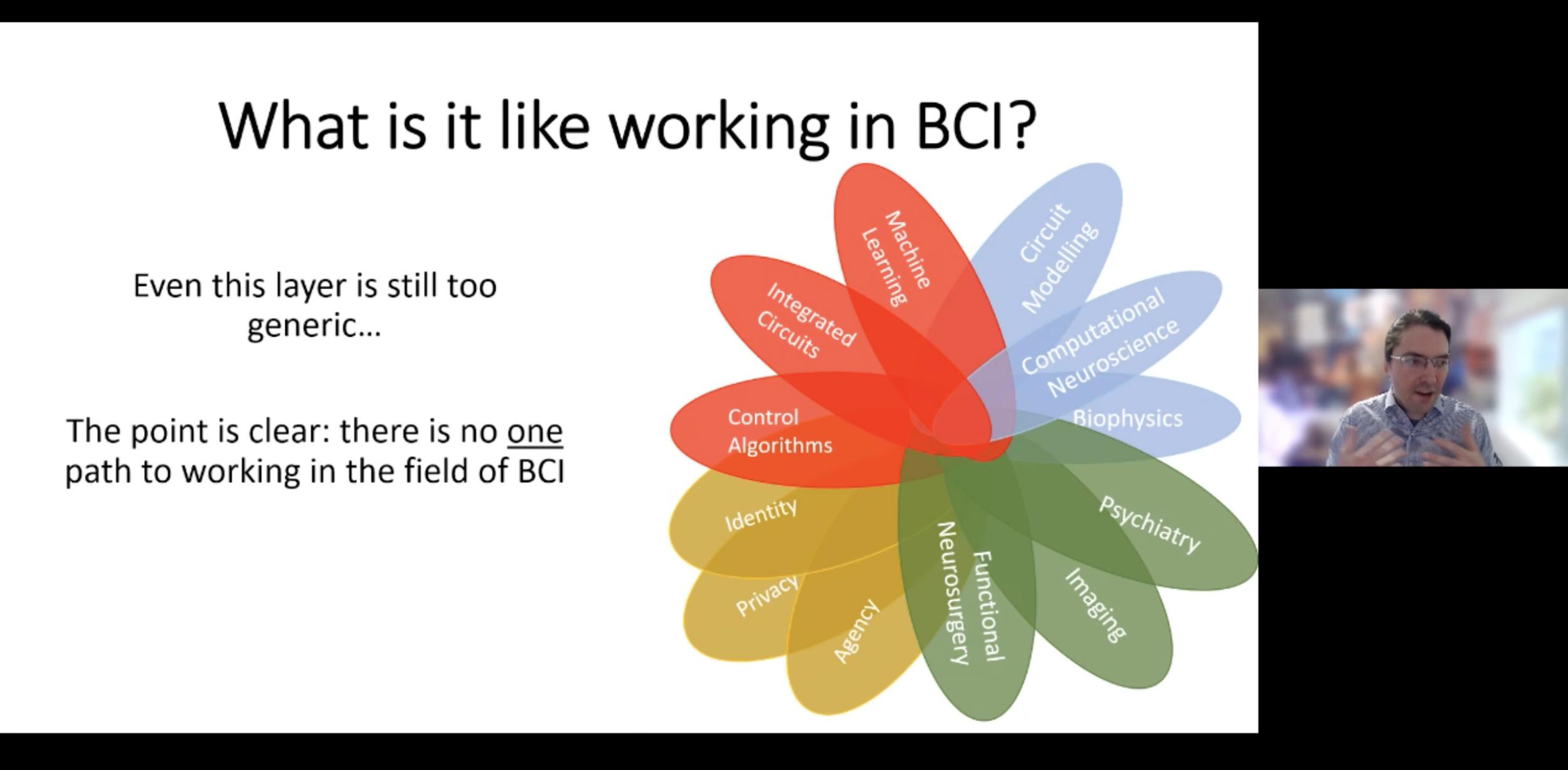- News
Distinguished Alumni Award Winner Champions Neuroscience

The Overlake Board of Trustees and Alumni Board is proud to present the fourth annual Distinguished Alumni Award to Dr. Jeffrey Herron, (’05). Dr. Herron is doing amazing research in the field of Brain Computer Interfaces (BCI).
Herron has spent the last several years dedicating his time to researching ways to improve the treatment of neurological disorders, diseases, and injuries.
Students attended a virtual presentation where they learned not only about the work Herron is doing in his field, but also learned first-hand what it’s like to pursue a PhD and get into biomedical research. Herron was quick to point out that research of this kind is not limited to one discipline but spans multiple areas including, but not limited to, science, medical research, engineering, ethics, and more. “It’s not the kind of work you can do by yourself,” said Herron.
While students didn’t have to become neuroscience experts by the end of the presentation, Herron hoped that students would be inspired to the field of neuroscience and also realize that the path to a career in BCI could originate from many different fields. “There’s not a specific or best path. It’s ok for your destination or path to change. It’s good to keep doors open,” he said. Herron even added that colleagues who took years off from schooling to work in various industries before returning to a PhD program had great experiences and perspectives to bring to the research.
As he reflected on his time at Overlake, he remembered enjoying the opportunity to be involved in technical theater, which gave him a creative outlet where he could hone his technical skills. He also credited several teachers with sparking his interest in science and others for holding high standards in his writing which directly serves him in his everyday work. It may have come as a surprise to students when Herron said that he spends most of his time writing, rather than doing science experiments. He was quick to point out that science is great, but you must be able to distill the information and communicate your findings to receive grants and other funding for your research.
An emphasis on ‘soft skills’ was key to Herron’s presentation. “The most important skills are not science skills, they’re interpersonal communication, teamwork, and networking. These are the critical aspects of your career” he said.
You can read more about Dr. Herron’s work at the University of Washington here.
